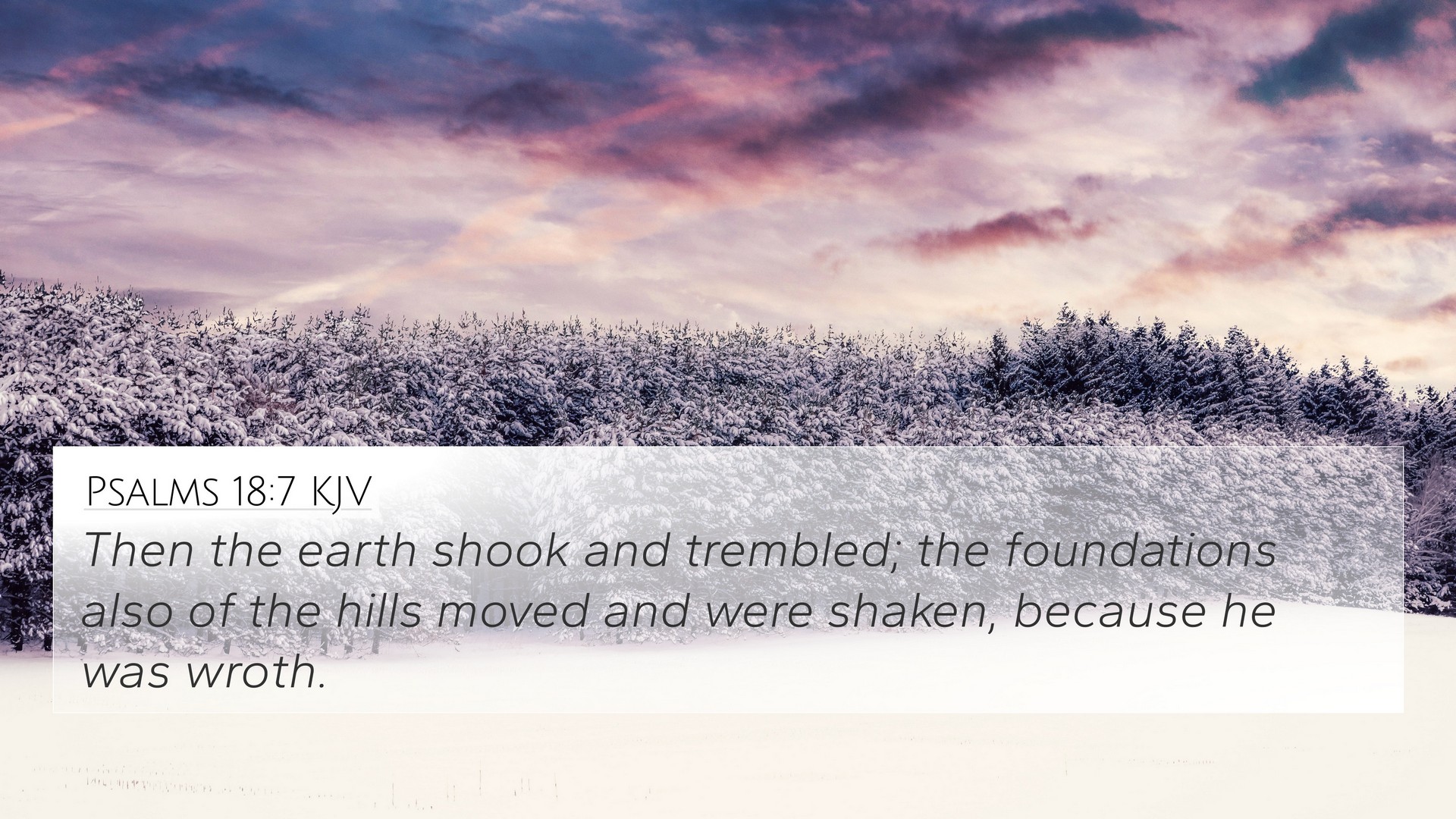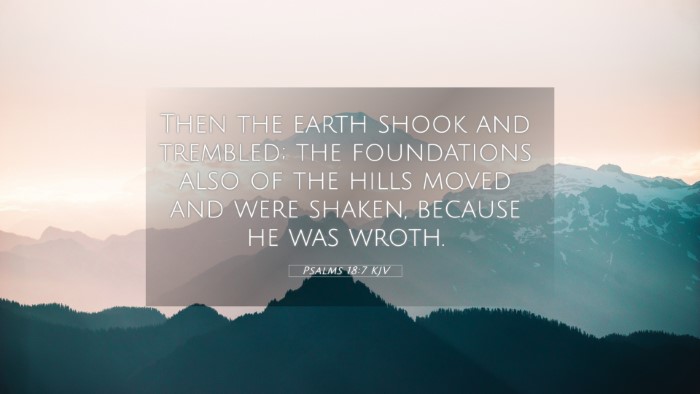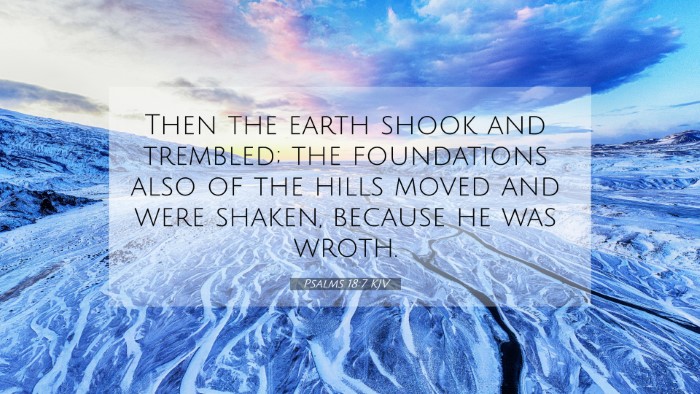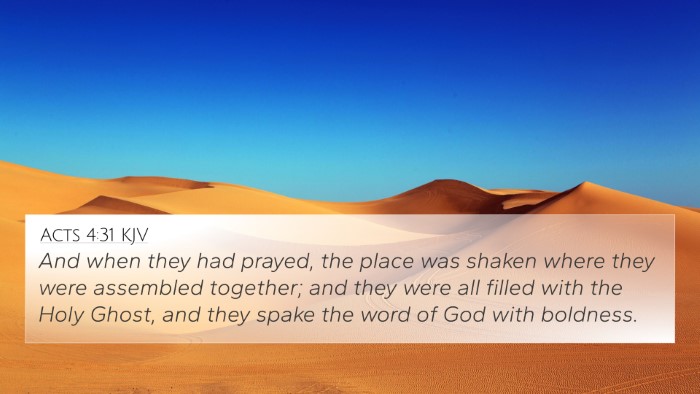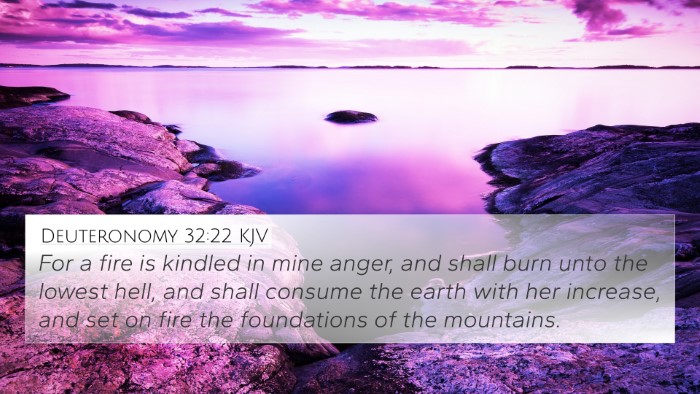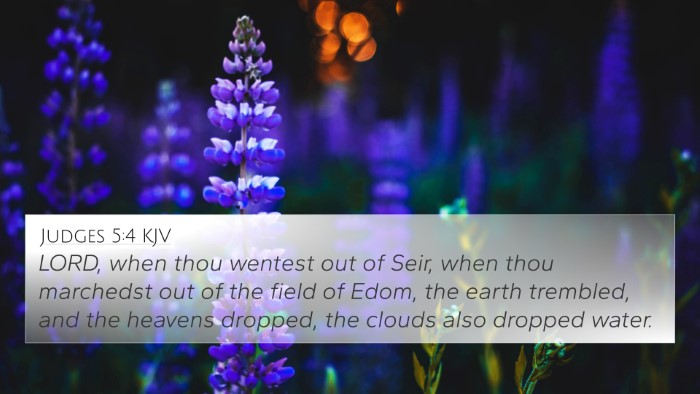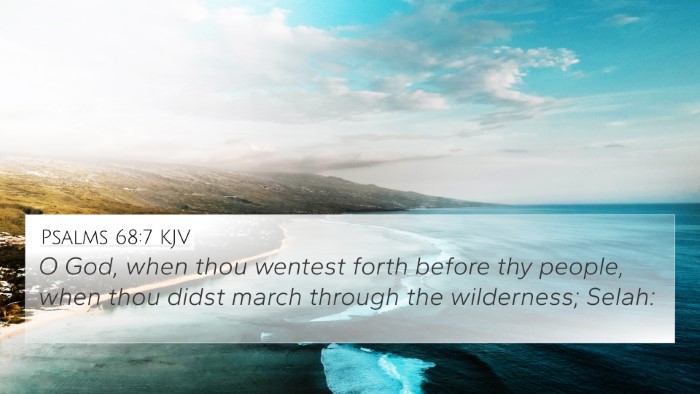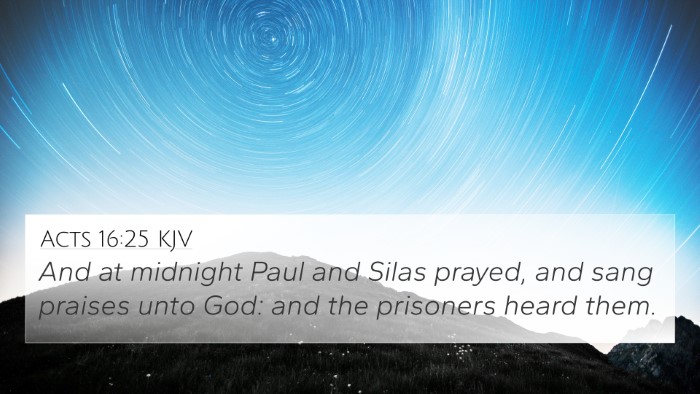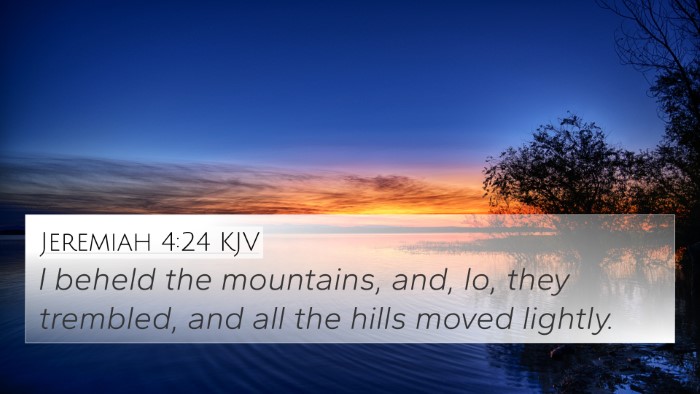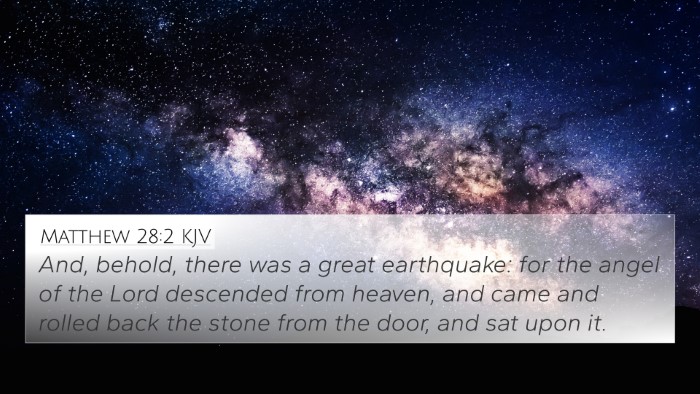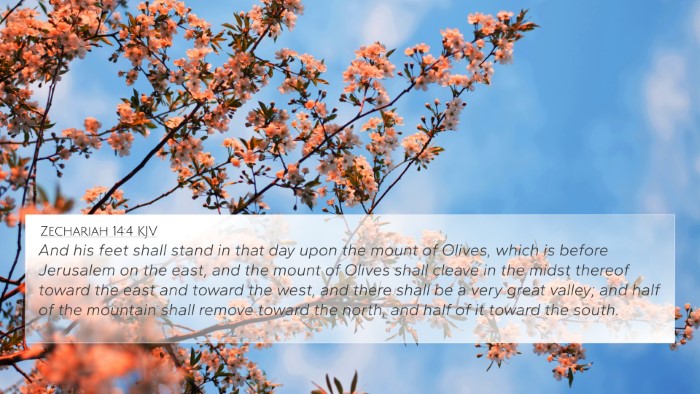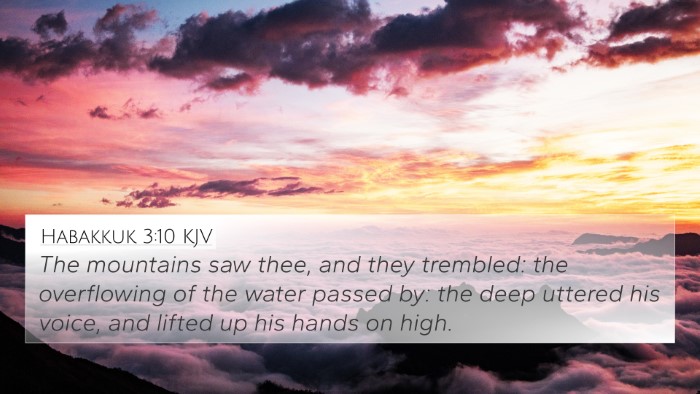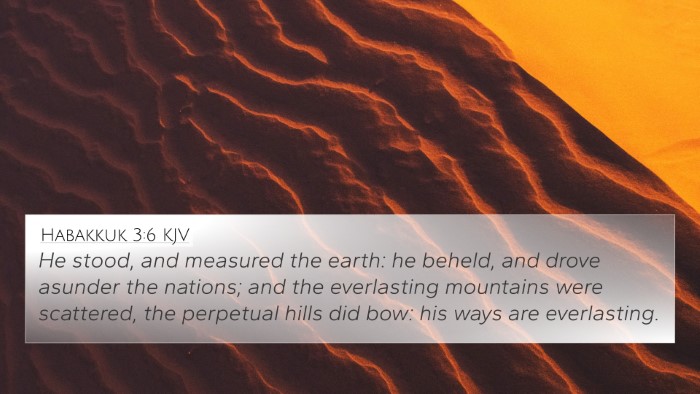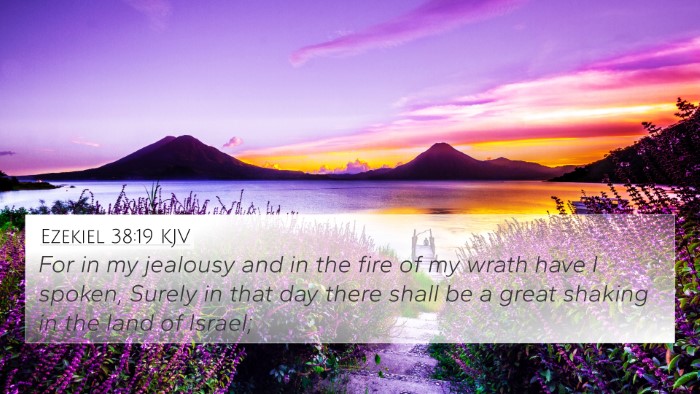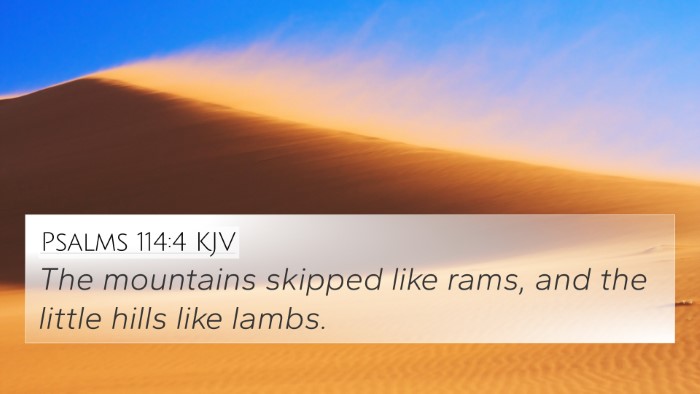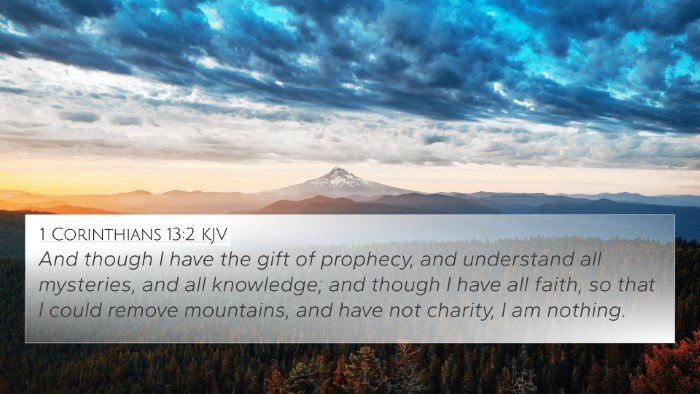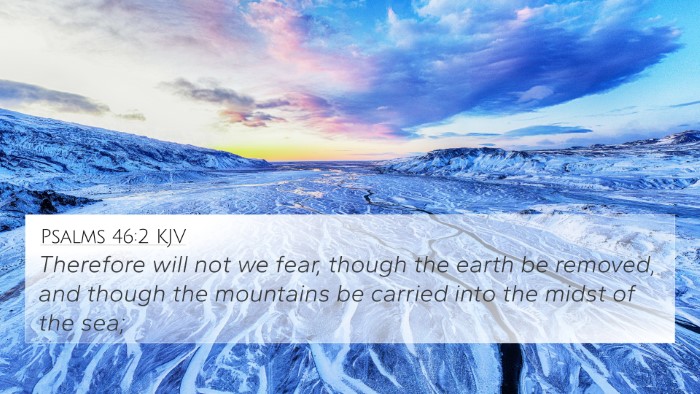Psalms 18:7 - Understanding the Verse
Psalms 18:7 reads:
"Then the earth shook and trembled; the foundations also of the hills moved and were shaken, because he was wroth."
This verse provides a vivid description of God's mighty presence and His response to the cries of His people. The imagery of the earth shaking signifies the profound impact of divine intervention and the seriousness of God's anger towards sin and injustice.
Commentary Insights
-
Matthew Henry's Commentary:
According to Matthew Henry, this verse exemplifies how God is moved to act in response to the distress of His people. The shaking of the earth manifests God's displeasure and His readiness to deliver His faithful. It underscores the reality that when God arises to rescue, all creation responds.
-
Albert Barnes' Commentary:
Albert Barnes emphasizes that the natural phenomena described here symbolize God's power and His sovereignty over the universe. The trembling of the earth represents the reaction of creation to its Creator, particularly when His judgment is enacted due to human wickedness.
-
Adam Clarke's Commentary:
Adam Clarke suggests that this verse reflects the magnificence of God's presence when He becomes incensed. The shaking of the earth illustrates the significance of divine wrath and serves as a warning of the serious consequences of moral failings among mankind.
Bible Verse Cross-References
Psalms 18:7 is connected to several other scriptures that enhance its meaning. Here are some key cross-references:
-
Exodus 19:18: "And mount Sinai was altogether on a smoke, because the LORD descended upon it in fire: and the smoke thereof ascended as the smoke of a furnace, and the whole mount quaked greatly."
This verse shows the correlation between divine presence and natural upheaval.
-
Isaiah 64:1: "Oh, that thou wouldest rend the heavens, that thou wouldest come down, that the mountains might flow down at thy presence."
Isaiah expresses a yearning for God’s presence to be dramatically felt, reminiscent of the tremors in Psalms 18:7.
-
Hebrews 12:26: "Whose voice then shook the earth: but now he hath promised, saying, Yet once more I shake not the earth only, but also heaven."
This New Testament reference echoes the themes of divine shaking due to God’s authority.
-
Revelation 6:12: "And I beheld when he had opened the sixth seal, and, lo, there was a great earthquake; and the sun became black as sackcloth of hair, and the moon became as blood."
The apocalyptic imagery aligns with the themes of judgment found in Psalms 18:7.
-
Matthew 27:51: "And, behold, the veil of the temple was rent in twain from the top to the bottom; and the earthquake, and the rocks rent."
The earth trembling serves as a response to a significant divine event, emphasizing God’s intervention.
-
2 Samuel 22:8: "Then the earth shook and trembled; the foundations of heaven moved and shook, because he was wroth."
This parallel verse directly relates to Psalms 18:7, reinforcing the theme of God's anger and divine response.
-
Job 9:6: "Which shaketh the earth out of her place, and the pillars thereof tremble."
Acknowledges God’s power over creation and its response to His will.
-
Psalm 46:2: "Therefore will not we fear, though the earth be removed, and though the mountains be carried into the midst of the sea."
This verse reflects on the security found in God even in uncontrollable circumstances.
Connecting the Themes
The themes within Psalms 18:7 resonate across various scriptures, illustrating how God's might elicits a response from creation. Understanding the connections between Bible verses is crucial for deeper insights into the Scriptures. This facilitates a greater recognition of inter-Biblical dialogue, illustrating how different authors and books in the Bible underscore similar themes.
Tools for Bible Cross-Referencing
For those interested in further studying these connections, various resources can aid in understanding the cross-referencing of Bible verses:
- Bible Concordance: A comprehensive tool for finding specific words and their occurrences in the Bible.
- Bible Cross-reference Guide: Assists in identifying verses that cross-reference one another.
- Cross-reference Bible Study: Methods to engage with the Word through connections between passages.
Utilizing Cross-References in Bible Study
Engaging with cross-referenced themes in the Bible not only enhances understanding but also opens doors for deeper spiritual insights. Here are some tips for effectively using cross-references in study:
- Identifying connections: Look for recurring themes or phrases in related scriptures.
- Differentiating Testaments: Explore how the Old and New Testaments converge on thematic elements such as judgment, mercy, and deliverance.
- Comparative studies: Investigate differences and similarities between wisdom literature and prophetic texts to enrich your studies.
Conclusion
Psalms 18:7 serves as a powerful reminder of God's might and responsiveness to His creation. Through understanding and utilizing various Bible verse cross-references, believers can deepen their comprehension of scripture and grow in their faith.
